#constance holland
Text
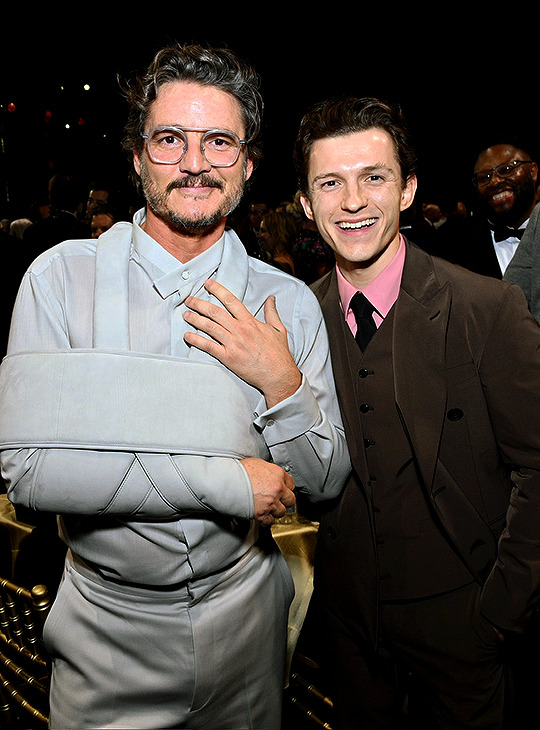
PEDRO PASCAL & TOM HOLLAND
29th Annual Critics Choice Awards (January 14, 2024)
#pedro pascal#tom holland#critics choice awards#pedropascledit#ppascaledit#tomhollandedit#thollandedit#swcastedit#marvelcastedit#dccastedit#tloucastedit#gotcastedit#flawlessgentlemen#appearances#edits#constance
3K notes
·
View notes
Text
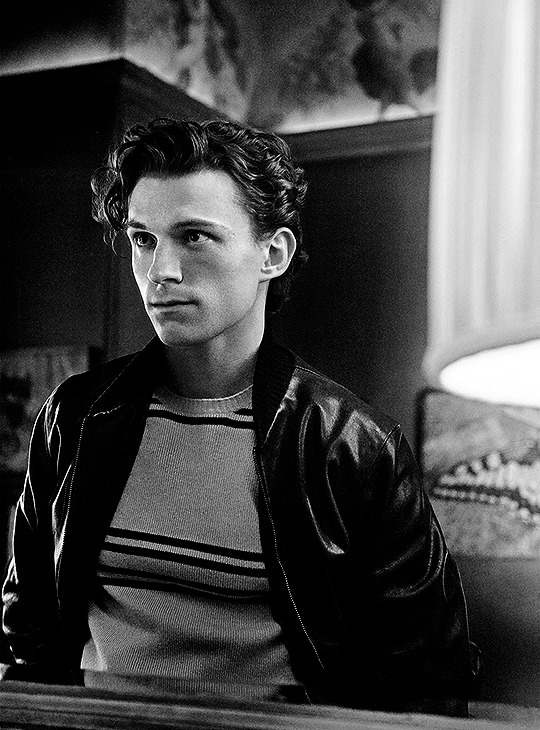



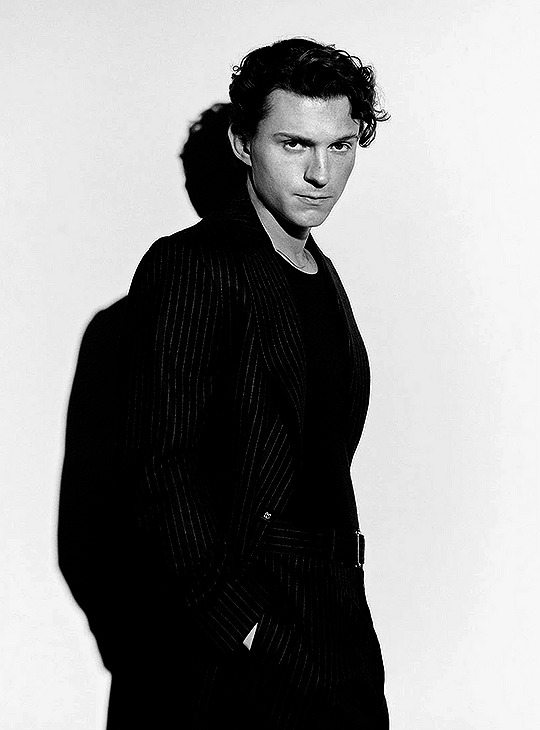
TOM HOLLAND photographed by ISAAC ANTHONY
The Hollywood Reporter 2023
1K notes
·
View notes
Text
[Essere figlio di Oscar Wilde][Vyvyan Holland]
La pesante ombra dello scandalo che colpì il padre all’apice del successo trasformò un’infanzia felice in un susseguirsi di eventi dolorosi, di avversità e rinunce.
La pesante ombra dello scandalo che colpì il padre all’apice del successo trasformò un’infanzia felice in un susseguirsi di eventi dolorosi, di avversità e rinunce. Holland non cede mai al rancore o all’autocommiserazione, dà invece vita a un gioiello, che permetterà a tutti i lettori, agli studiosi e agli appassionati del celebre scrittore di rileggere la sua vita da una prospettiva diversa,…
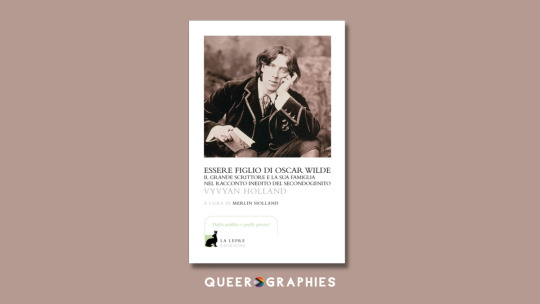
View On WordPress
#2023#Constance Lloyd#Essere figlio di Oscar Wilde#gay#La Lepre Edizioni#LGBT#LGBTQ#Lucia Matano#memoir#Merlin Holland#nonfiction#Oscar Wilde#Son of Oscar Wilde#UK#Vyvyan Holland
0 notes
Text

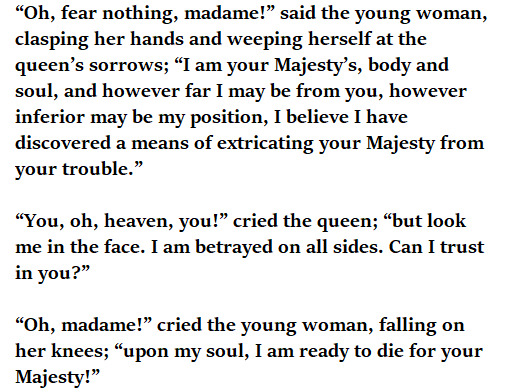
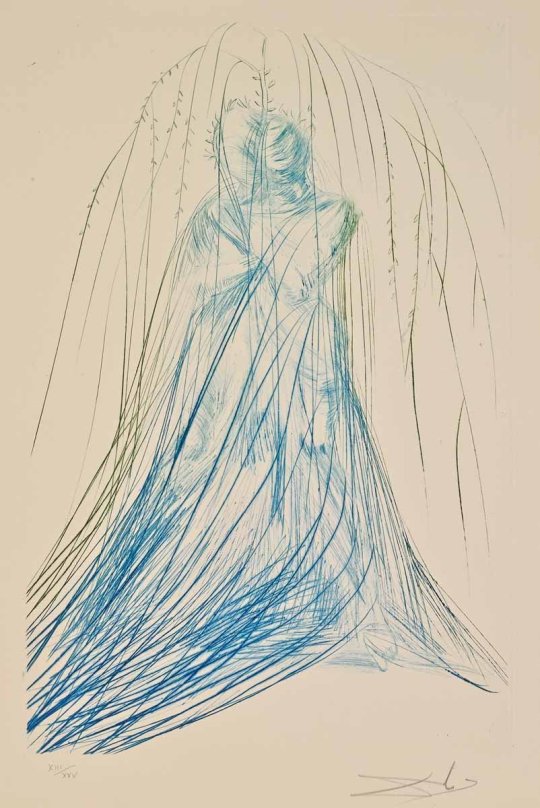

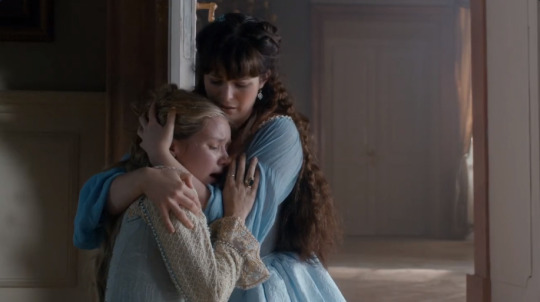

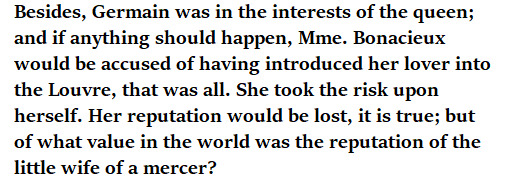
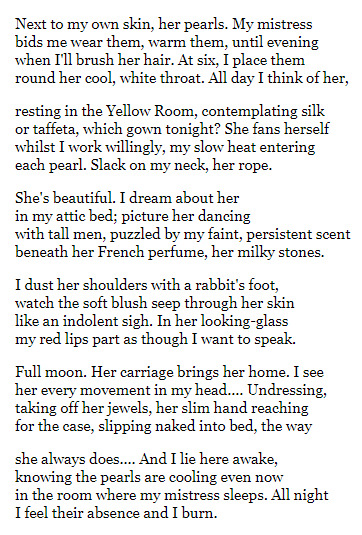
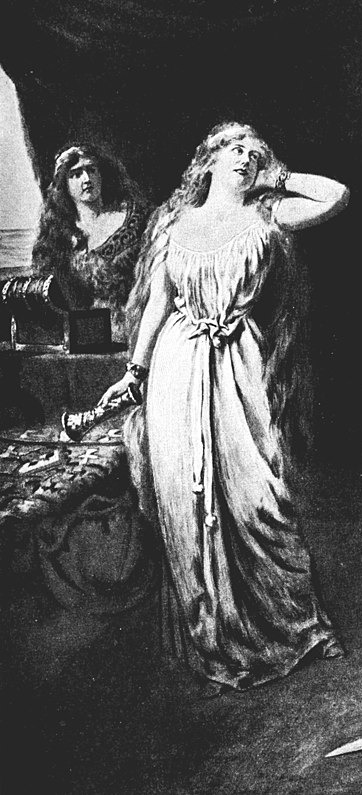

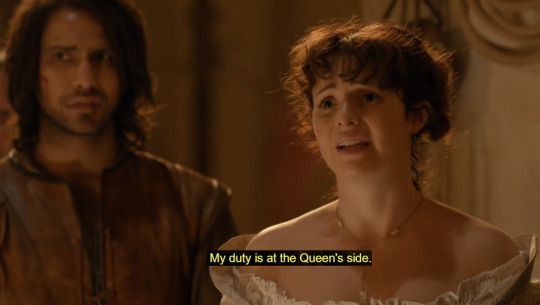
on Brangaine, Constance Bonacieux, and devotion
La Tavola Ritonda / The Three Musketeers by Alexandre Dumas / Iseult and Brangaine (1970) by Salvador Dalí / Tristan and Isolde discovered by King Mark (1883) by August Spiess (detail) / The Musketeers (2014-2016) / Prose Tristan / Warming Her Pearls by Carol Ann Duffy / Detail of the illustration for Richard Wagner's Tristan and Isolde in The Victrola Book of the Opera: Stories of One Hundred and Twenty Operas with Seven-Hundred Illustrations and Descriptions of Twelve-Hundred Victor Opera Records (1917) by Samuel Holland Rous
#'is the lesbian poem really necessary' yes it's a load-bearing lesbian poem.#arthuriana#arthurian legends#brangien#brangaine#isolde#iseult#the three musketeers#alexandre dumas#the musketeers bbc#the musketeers#constance bonacieux#anne of austria#my stuff#gella talks musketeers#gella talks arthuriana#talk talk talk#mine: compilation posts
79 notes
·
View notes
Text
Ages of French Queens at First Marriage
I have only included women whose birth dates and dates of marriage are known within at least 1-2 years, therefore, this is not a comprehensive list.
This list is composed of Queens of France until the end of the House of Bourbon; it does not include Bourbon claimants or descendants after 1792.
The average age at first marriage among these women was 20.
Ermentrude of Orléans, first wife of Charles the Bald: age 19 when she married Charles in 842 CE
Richilde of Provence, second wife of Charles the Bald: age 25 when she married Charles in 870 CE
Richardis of Swabia, wife of Charles the Fat: age 22 when she married Charles in 862 CE
Théodrate of Troyes, wife of Odo: age 14 or 15 when she married Odo in 882 or 883 CE
Frederuna, wife of Charles III: age 20 when she married Charles in 907 CE
Beatrice of Vermandois, second wife of Robert I: age 10 when she married Robert in 990 CE
Emma of France, wife of Rudolph: age 27 when she married Rudolph in 921 CE
Gerberga of Saxony, wife of Gilbert, Duke of Lorraine, and later of Louis IV: age 16 when she married Gilbert in 929 CE
Emma of Italy, wife of Lothair: age 17 when she married Lothair in 965 CE
Adelaide-Blanche of Anjou, wife of Stephen, Viscount of Gévaudan, Raymond III, Count of Toulouse, and later Louis V: age 15 when she married Stephen in 955 CE
Bertha of Burgundy, wife of Odo I, Count of Blois, and later Robert II: age 19 when she married Odo in 984 CE
Constance of Arles, third wife of Robert II: age 17 when she married Robert in 1003 CE
Anne of Kiev, wife of Henry I: age 21 when she married Henry in 1051 CE
Bertha of Holland, first wife of Philip I: age 17 when she married Philip in 1072 CE
Bertrade of Montfort, wife of Fulk IV, Count of Anjou, and second wife of Philip I: age 19 when she married Fulk in 1089 CE
Adelaide of Maurienne, second wife of Louis VI: age 23 when she married Louis in 1115 CE
Eleanor of Aquitaine, first wife of Louis VII and later Henry II of England: age 15 when she married Louis in 1137 CE
Adela of Champagne, third wife of Louis VII: age 20 when she married Louis in `1160 CE
Isabella of Hainault, first wife of Philip II: age 10 when she married Philip in 1180 CE
Ingeborg of Denmark, second wife of Philip II: age 19 when she married Philip in 1193 CE
Agnes of Merania, third wife of Philip II: age 21 when she married Philip in 1195 CE
Blanche of Castile, wife of Louis VIII: age 12 when she married Louis in 1200 CE
Margaret of Provence, wife of Louis IX: age 13 when she married Louis in 1234 CE
Isabella of Aragon, first wife of Philip III: age 14 when she married Philip in 1262 CE
Marie of Brabant, second wife of Philip III: age 20 when she married Philip in 1274 CE
Joan I of Navarre, wife of Philip IV: age 11 when she married Philip in 1284 CE
Margaret of Burgundy, wife of Louis X; age 15 when she married Louis in 1305 CE
Clementia of Hungary, second wife of Louis X: age 22 when she married Louis in 1315 CE
Joan II, Countess of Burgundy, wife of Philip V: age 15 when she married Philip in 1307 CE
Blanche of Burgundy, first wife of Charles IV: age 12 when she married Charles in 1308 CE
Marie of Luxembourg, second wife of Charles IV: age 18 when she married Charles in 1322 CE
Joan of Évreux, third wife of Charles IV: age 14 when she married Charles in 1324 CE
Bonne of Luxembourg, first wife of John II: age 17 when she married John in 1332 CE
Joan I, Countess of Auvergne, wife of Philip of Burgundy, and later John II: age 12 when she married Philip in 1338 CE
Joanna of Bourbon, wife of Charles V: age 12 when she married Charles in 1350 CE
Isabeau of Bavaria, wife of Charles VI: age 15 when she married Charles in 1385 CE
Marie of Anjou, wife of Charles VII: age 18 when she married Charles in 1422 CE
Charlotte of Savoy, second wife of Louis XI: age 9 when she married Louis in 1451 CE
Anne of Brittany, wife of Maximilian I, HRE, Charles VIII and later Louis XII: age 13 when she married Maximilian in 1490 CE
Joan of France, first wife of Louis XII: age 12 when she married Louis in 1476 CE
Mary Tudor, third wife of Louis XII: age 18 when she married Louis in 1514 CE
Claude of France, first wife of Francis I: age 15 when she married Francis in 1514 CE
Eleanor of Austria, wife of Manuel I of Portugal and later second wife of Francis I: age 20 when she married Manuel in 1518 CE
Catherine de' Medici, wife of Henry II: age 14 when she married Henry in 1533 CE
Mary, Queen of Scots, wife of Francis II: age 16 when she married Francis in 1558 CE
Elisabeth of Austria, wife of Charles IX: age 16 when she married Charles in 1570 CE
Louise of Lorraine, wife of Henry III: age 22 when she married Henry in 1575 CE
Margaret of Valois, first wife of Henry IV: age 19 when she married Henry in 1572 CE
Marie de' Medici, second wife of Henry IV: age 25 when she married Henry in 1600 CE
Anne of Austria, wife of Louis XIII: age 14 when she married Louis in 1615 CE
Maria Theresa of Spain, wife of Louis XIV: age 22 when she married Louis in 1660 CE
Marie Leszczyńska, wife of Louis XV: age 22 when she married Louis in 1725 CE
Marie Antoinette, wife of Louis XVI: age 15 when she married Louis in 1770 CE
37 notes
·
View notes
Text
Hello, hello :)
┊ ➶ 。°.・。.・゜✭・.・✫・゜・。.

-This is @urbanflorals writing account.
-This blog will mostly be about writing and my wips and stuff like that and my chaotic thoughts about my writing
So enter at your own risk....
I also haven't gotten around to creating introductions for all the characters just yet. I'll do it sometime, promise.
┊ ➶ 。°.・。.・゜✭・.・✫・゜・。.
My wips:
Cartlen College Series

My original story
Characters -
Lainey Bowen
Garrett Maddox
Juniper Magana
Hayden Mckenzie
Bleu Ando
Harper Allaire
Jordi Bowen
Oliver Dawson
┊ ➶ 。°.・。.・゜✭・.・✫・゜・。.
Hurricane Girls Series

My original story
Characters -
Xandia Northwood
Ivory Abbot
Willa Thornton
Effie Holland
West Avengale
Boston Harding
Chase Sawyer
Gray Fitzweld
┊ ➶ 。°.・。.・゜✭・.・✫・゜・。.
Shattered Hearts

My original story
Characters -
Hallie O'Connor
Kaiden Alvarez
Violet Reynolds
Crew Peirce
┊ ➶ 。°.・。.・゜✭・.・✫・゜・。.
The Silent Court

My original story - the one I'm probably working on the most
These characters won't have introductions cause I have way too many -
Aurelia Birnett - The Silent Queen, Iris Birnett - The Siren, Amithi Brandson - The Scorpion, Beatrice Graye - The Archer, Linette Bardot - Red, Blaire Anderston - The Locket, Genevieve Weston - The Viper, Naomi Keller - The Forgess, Harper Beckett - The Slave
Callum Hansley, Leahla Hansley, Julias Hansley, Caspar Hansley, Avena Crista
The cast of the Silent Court
┊ ➶ 。°.・。.・゜✭・.・✫・゜・。.
Edgeton Prep

My original story
Characters -
Constance Fracher
Quinn Markey
Evie Markwood
Macey Gibson
Griffin Prescott
Jaiden Pitcher
Parker Gibson
Connor Jackson
Aidan Flecture
┊ ➶ 。°.・。.・゜✭・.・✫・゜・。.
This was really long but oh well. These are only some of my wips. I might post about my other stories and stuff as well.
I'll probably also write random prompts I find or want to do. My ask box is always open for people to put prompts or just questions in general :)
Thank you for reading this loves <3
22 notes
·
View notes
Text
Varney the Vampire: Chapter 16
Chapter 15: Our nephew can't marry some German vampyre!
PREVIOUSLY ON: We had a dance break to introduce two new comic-relief characters. But before that, Flora's sorta-fiancé that she met on the Continent and hadn't seen since showed up, and Flora's oldest brother started trying to warn him (Charles Holland) that since Flora has been bitten by a vampyre, he (Charles Holland) should not marry her. Flora said he should not marry her. The stalwart and faithful Charles Holland is not having any of that shit.
CHAPTER XVI.
THE MEETING OF THE LOVERS IN THE GARDEN. -- AN AFFECTING SCENE. -- THE SUDDEN APPEARANCE OF SIR FRANCIS VARNEY.
Or is he?
Our readers will recollect that Flora Bannerworth had made an appointment with Charles Holland in the garden of the hall. [...] The thought that he should be much urged by Flora to give up all thoughts of making her his, was a most bitter one to him, who loved her with so much truth and constancy, and that she would say all she could to induce such a resolution in his mind he felt certain. But to him the idea of now abandoning her presented itself in the worst of aspects.
Okay but. We just had like a chapter and a half of you swearing up and down that you'd never—
“Dare I be so base as actually or virtually to pad out out the word count say to her, 'Flora, when your beauty was undimmed by sorrow -- when all around you seemed life and joy, I loved you selfishly for the increased happiness which you might bestow upon me; but now the hand of misfortune presses heavily upon you -- you are not what you were, and I desert you?' Never -- never -- never!"
Atta boy.
James Malcolm Rymer decides to throw in that Charles Holland (if you are just joining us, I feel like you always have to say his full name. Rymer often does. It just feels right) "felt more acutely than he reasoned." I'm not sure if this is meant to be snarky or not; at least Rymer follows this up by lauding his "nobility of soul."
As for Flora, Heaven only knows if at that precise time her intellect had completely stood the test of the trying events which had nearly overwhelmed it.
On one hand, I get it: Flora's had a tough week. On the other hand, shut the fuck up, Rymer.
The two grand feelings that seemed to possess her mind were fear of the renewed visits of the vampyre, and an earnest desire to release Charles Holland from his repeated vows of constancy towards her.
She's still holding up better than her brother Henry, who was constantly wailing about how the horror of having a sister bitten by a vampyre ancestor is driving him maaaaad. Flora's intellect seems to be working perfectly fine, however, as she weighs her love for Charles Holland vs. the depth of his suffering: "To link him to her fate, would be to make him to a real extent a sharer in it."
In the sense that he might have to watch her be staked, and grieve her death?
In the sense that she might become a vampyre and come after her nearest and dearest (i.e., him) first, as vampires were folklorically said to do?
In the sense that she might bear… tainted children?!
[And] the more she [had] heard fall from his lips in the way of generous feelings of continued attachment to her, the more severely did she feel that he would suffer most acutely if united to her.
And she was right.
But they were going to have a romantic rendezvous to talk this out, right? Charles is now waiting for her in Bannerworth Hall's [overdescribed] flower garden, secluded from the main building,
and in its centre was a summer-house, which at the usual season of the year was covered with all kinds of creeping plants of exquisite perfumes, and rare beauty. All around, too, bloomed the fairest and sweetest of flowers, which a rich soil and a sheltered situation could produce.
Honestly, I had a long discussion/comparison of Flora to Stoker's Lucy Westenra here, and I feel like it needs to go take a nap and come back some other time as a separate post. But suffice it to say, I think wealth is an important factor in how pleasantly "sheltered" these two characters are: not to take anything away from their sweetness and purity of heart (this is where I start going on about how misunderstood Lucy is), but they can afford to be sweet and lovely and naive, if you see what I'm saying (and this is more apparent in Dracula, in comparison to Mina, her level head, and her professional skills). As much as we need to point out that Rymer is romanticizing whiteness (figuratively and literally), I think we also have to consider that he's romanticizing wealth—class—by going on and on about a family estate with a large, "sheltered," professionally-tended garden.
Rymer continues this metaphor by saying that the "more estimable Flora floral culture" has declined,
for the decayed fortunes of the family had prevented them from keeping the necessary servants, to place the Hall and its grounds in a state of neatness, such as it had once been the pride of the inhabitants of the place to see them. It was then in this flower-garden that Charles and Flora used to meet.
I SAID, THAT SHE MET ON THE CONTINENT AND HASN'T SEEN SINCE
Nonetheless, Charles Holland has arrived early to this garden of lies. He is ready to romance. "Aníron" plays softly in the distance.
A light sound, as of some fairy footstep among the flowers, came upon his ears, and turning instantly to the direction from whence the sound proceeded, he saw what his heart had previously assured him of, namely that it was his Flora that was coming.
Alas, the flower that to his mind was fairer than them all, was blighted, and in the wan cheek of her whom he loved, he sighed to see the lily usurping the place of the radiant rose.
Yes, it was she; but, ah, how pale, how wan -- how languid and full of the evidences of much mental suffering was she. Where now was the elasticity of that youthful step? Where now was that lustrous beaming beauty of mirthfulness, which was wont to dawn in those eyes?
Alas, all was changed. The exquisite beauty of form was there, but the light of joy which had lent its most transcendent charms to that heavenly face, was gone.
There's a reason Rymer goes to such lengths to (also; additionally; is there anything he doesn't) romanticize Flora's ill health:
While tuberculosis has been traced back thousands of years (and is still considered a pandemic), it wasn't named as such until 1834. And because it wasn't identified as a single disease until the 1820s, it was often thought to be vampirism: blood would appear on a patient's lips, people around them would also sicken and die, and so on. The colloquial name for tuberculosis (as you probably know) was consumption, even: being consumed by something unseen, unto death.
But as the Dead Maidens article up there points out, tuberculosis was glamorized among the upper class (not the only class who came down with it, mind you). Tuberculosis, as diseases go, had more dignity than dysentery and cholera, and happened to exaggerate what people already considered to be attractive:
[Early] symptoms seemed to heighten already established beauty standards of the time, and a wealthy young woman could waste away for years before the horrible end came. In the meantime, poor circulation turned fair complexions ghastly white. The blue veins and translucent fragile skin were treated as a crystalline delicacy. The constant low fever kept the cheeks and lips flushed with a rosy hue and the eyes wide and watery. Patients would waste away growing ethereally thin.
Chicken or egg: Did tuberculosis underline existing beauty ideals, or was it a matter of people glamorizing what they saw happening around them anyway? Yes, I think, is the answer to that.
Meanwhile, the contagion ramped up through the 1700s and 1800s, and when you combine this with the increase in both literacy and affordable publishing during the Industrial Revolution, you get the first era, the pre-Dracula era, of Western vampire literature, starting with Lenore (1773) and The Bride of Corinth (1797). (Which were published after the 1750s Austrian Vampire Problem we talked about last time.) Meanwhile, in 2023, I wrote a gigantic digression about heroes coddling heroines as validation for readers who feel unvalidated and beauty as virtue that I am straight-up going to have to cut out and maybe post separately, because this recap is already way too long.
ANYWAY, MY DEAR FLORA, said Charles Holland,
"remember that there are warm hearts that love you. Remember that neither time nor circumstance can change such endearing affection as mine. [...] Wherefore, Flora, would you still the voice of pure affection? I love you surely, as few have ever loved."
I love this shit. I absolutely love stories where Our Hero (Gender Neutral) tells me the Reader Proxy, for several paragraphs, that they love her/him/them heart and mind and body and soul for all time unto the heat death of the universe. LOVE. THAT. SHIT.
No, cries Flora! We mustn't! (But we MUST!) I will not quote all of this scene to you, but suffice it to say that they argue over how Charles Holland's entire face would shout his love if his tongue didn't happen to show up at the office that day. He is not just words! He is action! No, you mustn't! BUT I MUST! Love it.
Notice, though, how you must not is not I do not want you to. A lot of older romance writing either doesn't care about consent (I know a number of current romance writers who do, very much much so), or it stays sort of muddled and unclear as to how much a heroine is really into it. This may be either in the spirit of dubcon or honestly, because characters in an era when they weren't supposed to touch (Charles and Flora are actually pretty handsy. Waist action happens) are kind of pushing the envelope by talking too much about it at all. Flora may really be saying, "Charles Holland, we mustn't speak of love at such agonizing length in a wholesome publication!" ("I mean, is a pamphlet that wholesome, it's not a real newspaper or anything...") "Well, it has to be reasonably decent! I have to at least blush and avert my maidenly eyes every couple of sentences! We should probably talk about God watching us at some point!" ("Like... watching us...?") ("NO!!!")
"I must not now hear this. Great God of Heaven give me strength to carry out the purpose of my soul. […] Charles, I know I cannot reason with you. I know I have not power of language, aptitude of illustration, nor depth of thought to hold a mental contention with you."
POINTS:
Flora needing strength to carry out her purpose—refusing Charles Holland—underlines that this is something she does not, in fact, want to do. While Charles Holland's persistence might be functionally indistinguishable from Dude Who Won't Take No For An Answer, here in a fictional context, we're given cues that Charles understands correctly that Flora is only trying to break up with him For His Own Good.
Compared to these frequent comments on Flora's allegedly weak intellect, can you see how "She has man’s brain [and] a woman's heart" is actually a fairly decent compliment to Mina Harker on Stoker's part?
Shut the fuck up, Rymer
Why not speak of love, demands Charles Holland?? We spoke of love 24/7 on the Continent! Whyfore not thereunto??
"I am changed, Charles. Fearfully changed. The curse of God has fallen upon me, I know not why. I know not that in word or in thought I have done evil, except perchance unwittingly, and yet -- the vampyre."
Charles Holland insists that there's got to be a rational explanation, because he is not actually the one who shot a vampyre in the face, nor has he been anyone's repast. To which Flora basically says, "WELL FIND ONE THEN." Saying which, she flings herself onto a seat in the summer-house (I'm imagining a gazebo here), and "covering her beautiful face with her hands, [sobs] compulsively." To hundreds of words of Charles Holland's dismay, Flora goes on to say that he should go find someone else, and "justice, religion, mercy -- every human attribute which bears the name of virtue" calls upon her to dump him. Which, again: if Flora really wanted to break up with him, she wouldn't be talking about all the external factors making her do it. There are several great breakup scenes in English-language literature of the 1800s from Pride and Prejudice onward, and this, on many levels, is not one of them. Charles Holland (and a reader used to this kind of writing) would pick up on that subtext. (Truly, I cannot emphasize enough that fiction is not real life. Don't presume to know what other people "really" mean IRL.) Thus, Charles Holland counters with the wonderful marshmallow romance goo:
"Well I know that gentle maiden modesty [that we need to have in this Reasonably Decent Publication] would seal your lips to the soft confession that you love me. I could not hope the joy of hearing you utter these words. The tender devoted lover is content to see the truthful passion in the speaking eyes of beauty. Content is he to translate it from a thousand acts, which, to eyes that look not so acutely as a lover's, bear no signification; but when you tell me to seek happiness with another, well may the anxious question burst from my throbbing heart of, 'Did you ever love me, Flora?'"
Her senses hung entranced upon his words. Oh, what a witchery is in the tongue of love. Some even of the former colour of her cheek returned as, forgetting all for the moment but that she was listening to the voice of him, the thoughts of whom had made up the day dream of her happiness, she gazed upon his face.
His voice ceased. To her it seemed as if some music had suddenly left off in its most exquisite passage. She clung to his arm -- she looked imploringly up to him. Her head sunk upon his breast as she cried,
"Charles, Charles, I did love you. I do love you now."
"Then let sorrow and misfortune shake their grisly locks in vain," he cried. "Heart to heart -- hand to hand with me, defy them."
Their... gory hair? ANYWAY WE DEFY THE FATES, BELOVED! OUR LOVE CONQUERS ALL! WE CARE-BEAR STARE AT DESTINY, FLORA! Good hustle, that's what I wanna hear.
He lifted up his arms towards Heaven as he spoke, and at the moment came such a rattling peal of thunder, that the very earth seemed to shake upon its axis. [Flora screams and there is extensive discussion of how scary it is.] Another peal, of almost equal intensity to the other, shook the firmament. Flora trembled.
Gonna be honest, I thought for a moment that Varney was falling off a wall again. Flora declares that this is the Voice of Heaven insisting that they break up forever, but Charles Holland insists that
"The sunshine of joy will shine on you again."
There was a small break in the clouds, like a window looking into Heaven. From it streamed one beam of sunlight, so bright, so dazzling, and so beautiful, that it was a sight of wonder to look upon. It fell upon the face of Flora; it warmed her cheek; it lent lustre to her pale lips and tearful eyes; it illuminated that little summer-house as if it had been the shrine of some saint.
Here we go again, let's note, with the insistence that Flora is intrinsically pure. How you like them omens? Now this, this is a promise of God, and yea, a dove with an olive branch probably flies through a rainbow somewhere over the house. Back in the day, I took a graduate class on (American, mid-1800s) sentimental literature, which my professor characterized as "weepin' and prayin'." A certain kind of Protestant piety runs deep through these texts—not just the American ones—and appears as a default mindset in a lot of 19th-century literature:
Most of the high profile female writers of this period were committed Christians. The Broad Church Brontës, the Unitarian Mrs Gaskell and the systematically unconventional Emily Dickinson made much use of their faith in their work. So did George Eliot, supersaturated with a religion in which she no longer believed, yet an accomplished theologian. The male writers were often committed believers too, despite the apparently worldly outlook of many, including apparently cynical Thackeray and robustly conventional Trollope.
Throughout Victoria's reign, religious controversy simmers, not only among journalists but poets and novelists too. These Christian turf wars are sometimes edited out of readings of Victorian texts because they might not feel relevant to modern studies. Marianne Thormählen in The Brontës and Religion sees it differently: ‘The Christian life is a foreign country to most people today and I believe it serves some purpose to be reminded that to the Brontës it was home.’
The flip side of this is that vampire fiction tends to bring in a Catholic Christian vibe: no matter what denomination anyone was before the fangs came out, let's throw holy water and a wafer at the problem. But in the meantime!
She allowed him to clasp her to his heart. It was beating for her, and for her only. [...] "Charles, we will live, love, and die together."
In "a wrapt stillness" and "a trance of joy," they stare at each other and smile and nearly cry for a good long while, which is very sweet. BUT THEN!
A shriek burst from Flora's lips -- as shriek so wild and shrill that it awakened echoes far and near. Charles staggered back a step, as if shot, and then in such agonised accents as he was long indeed in banishing the remembrance of, she cried, --
"The vampyre! the vampyre!"
Yeah, that's the chapter. You might recall that Sir Francis the Vampyre expressed hopes of courting Flora, so this is gonna get interesting.
Varney the Vampire masterpost
36 notes
·
View notes
Text
full list of biden letter 2:
Aaron Bay-Schuck
Aaron Sorkin
Adam & Jackie Sandler
Adam Goodman
Adam Levine
Alan Grubman
Alex Aja
Alex Edelman
Alexandra Shiva
Ali Wentworth
Alison Statter
Allan Loeb
Alona Tal
Amy Chozick
Amy Pascal
Amy Schumer
Amy Sherman Palladino
Andrew Singer
Andy Cohen
Angela Robinson
Anthony Russo
Antonio Campos
Ari Dayan
Ari Greenburg
Arik Kneller
Aron Coleite
Ashley Levinson
Asif Satchu
Aubrey Plaza
Barbara Hershey
Barry Diller
Barry Levinson
Barry Rosenstein
Beau Flynn
Behati Prinsloo
Bella Thorne
Ben Stiller
Ben Turner
Ben Winston
Ben Younger
Billy Crystal
Blair Kohan
Bob Odenkirk
Bobbi Brown
Bobby Kotick
Brad Falchuk
Brad Slater
Bradley Cooper
Bradley Fischer
Brett Gelman
Brian Grazer
Bridget Everett
Brooke Shields
Bruna Papandrea
Cameron Curtis
Casey Neistat
Cazzie David
Charles Roven
Chelsea Handler
Chloe Fineman
Chris Fischer
Chris Jericho
Chris Rock
Christian Carino
Cindi Berger
Claire Coffee
Colleen Camp
Constance Wu
Courteney Cox
Craig Silverstein
Dame Maureen Lipman
Dan Aloni
Dan Rosenweig
Dana Goldberg
Dana Klein
Daniel Palladino
Danielle Bernstein
Danny Cohen
Danny Strong
Daphne Kastner
David Alan Grier
David Baddiel
David Bernad
David Chang
David Ellison
David Geffen
David Gilmour &
David Goodman
David Joseph
David Kohan
David Lowery
David Oyelowo
David Schwimmer
Dawn Porter
Dean Cain
Deborah Lee Furness
Deborah Snyder
Debra Messing
Diane Von Furstenberg
Donny Deutsch
Doug Liman
Douglas Chabbott
Eddy Kitsis
Edgar Ramirez
Eli Roth
Elisabeth Shue
Elizabeth Himelstein
Embeth Davidtz
Emma Seligman
Emmanuelle Chriqui
Eric Andre
Erik Feig
Erin Foster
Eugene Levy
Evan Jonigkeit
Evan Winiker
Ewan McGregor
Francis Benhamou
Francis Lawrence
Fred Raskin
Gabe Turner
Gail Berman
Gal Gadot
Gary Barber
Gene Stupinski
Genevieve Angelson
Gideon Raff
Gina Gershon
Grant Singer
Greg Berlanti
Guy Nattiv
Guy Oseary
Gwyneth Paltrow
Hannah Fidell
Hannah Graf
Harlan Coben
Harold Brown
Harvey Keitel
Henrietta Conrad
Henry Winkler
Holland Taylor
Howard Gordon
Iain Morris
Imran Ahmed
Inbar Lavi
Isla Fisher
Jack Black
Jackie Sandler
Jake Graf
Jake Kasdan
James Brolin
James Corden
Jamie Ray Newman
Jaron Varsano
Jason Biggs & Jenny Mollen Biggs
Jason Blum
Jason Fuchs
Jason Reitman
Jason Segel
Jason Sudeikis
JD Lifshitz
Jeff Goldblum
Jeff Rake
Jen Joel
Jeremy Piven
Jerry Seinfeld
Jesse Itzler
Jesse Plemons
Jesse Sisgold
Jessica Biel
Jessica Elbaum
Jessica Seinfeld
Jill Littman
Jimmy Carr
Jody Gerson
Joe Hipps
Joe Quinn
Joe Russo
Joe Tippett
Joel Fields
Joey King
John Landgraf
John Slattery
Jon Bernthal
Jon Glickman
Jon Hamm
Jon Liebman
Jonathan Baruch
Jonathan Groff
Jonathan Marc Sherman
Jonathan Ross
Jonathan Steinberg
Jonathan Tisch
Jonathan Tropper
Jordan Peele
Josh Brolin
Josh Charles
Josh Goldstine
Josh Greenstein
Josh Grode
Judd Apatow
Judge Judy Sheindlin
Julia Garner
Julia Lester
Julianna Margulies
Julie Greenwald
Julie Rudd
Juliette Lewis
Justin Theroux
Justin Timberlake
Karen Pollock
Karlie Kloss
Katy Perry
Kelley Lynch
Kevin Kane
Kevin Zegers
Kirsten Dunst
Kitao Sakurai
KJ Steinberg
Kristen Schaal
Kristin Chenoweth
Lana Del Rey
Laura Dern
Laura Pradelska
Lauren Schuker Blum
Laurence Mark
Laurie David
Lea Michele
Lee Eisenberg
Leo Pearlman
Leslie Siebert
Liev Schreiber
Limor Gott
Lina Esco
Liz Garbus
Lizanne Rosenstein
Lizzie Tisch
Lorraine Schwartz
Lynn Harris
Lyor Cohen
Madonna
Mandana Dayani
Mara Buxbaum
Marc Webb
Marco Perego
Maria Dizzia
Mark Feuerstein
Mark Foster
Mark Scheinberg
Mark Shedletsky
Martin Short
Mary Elizabeth Winstead
Mathew Rosengart
Matt Lucas
Matt Miller
Matthew Bronfman
Matthew Hiltzik
Matthew Weiner
Matti Leshem
Max Mutchnik
Maya Lasry
Meaghan Oppenheimer
Melissa Zukerman
Michael Aloni
Michael Ellenberg
Michael Green
Michael Rapino
Michael Rappaport
Michael Weber
Michelle Williams
Mike Medavoy
Mila Kunis
Mimi Leder
Modi Wiczyk
Molly Shannon
Nancy Josephson
Natasha Leggero
Neil Blair
Neil Druckmann
Nicola Peltz
Nicole Avant
Nina Jacobson
Noa Kirel
Noa Tishby
Noah Oppenheim
Noah Schnapp
Noreena Hertz
Odeya Rush
Olivia Wilde
Oran Zegman
Orlando Bloom
Pasha Kovalev
Pattie LuPone
Paul & Julie Rudd
Paul Haas
Paul Pflug
Peter Traugott
Polly Sampson
Rachel Riley
Rafi Marmor
Ram Bergman
Raphael Margulies
Rebecca Angelo
Rebecca Mall
Regina Spektor
Reinaldo Marcus Green
Rich Statter
Richard Jenkins
Richard Kind
Rick Hoffman
Rick Rosen
Rita Ora
Rob Rinder
Robert Newman
Roger Birnbaum
Roger Green
Rosie O’Donnell
Ross Duffer
Ryan Feldman
Sacha Baron Cohen
Sam Levinson
Sam Trammell
Sara Foster
Sarah Baker
Sarah Bremner
Sarah Cooper
Sarah Paulson
Sarah Treem
Scott Braun
Scott Braun
Scott Neustadter
Scott Tenley
Sean Combs
Seth Meyers
Seth Oster
Shannon Watts
Shari Redstone
Sharon Jackson
Sharon Stone
Shauna Perlman
Shawn Levy
Sheila Nevins
Shira Haas
Simon Sebag Montefiore
Simon Tikhman
Skylar Astin
Stacey Snider
Stephen Fry
Steve Agee
Steve Rifkind
Sting & Trudie Styler
Susanna Felleman
Susie Arons
Taika Waititi
Thomas Kail
Tiffany Haddish
Todd Lieberman
Todd Moscowitz
Todd Waldman
Tom Freston
Tom Werner
Tomer Capone
Tracy Ann Oberman
Trudie Styler
Tyler James Williams
Tyler Perry
Vanessa Bayer
Veronica Grazer
Veronica Smiley
Whitney Wolfe Herd
Will Ferrell
Will Graham
Yamanieka Saunders
Yariv Milchan
Ynon Kreiz
Zack Snyder
Zoe Saldana
Zoey Deutch
Zosia Mamet
11 notes
·
View notes
Text
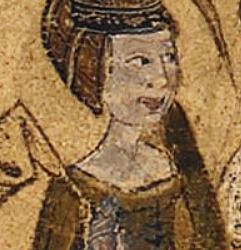
Isabel of Castile, First Duchess of York
Isabel was the third of four children of King Pedro I, also known as Pedro the Cruel, who ruled the Crown of Castile from 1350. Her mother was the vivacious and intelligent Maria de Padilla, often described as Pedro's mistress. In 1361, when Isabel was only six, her mother died. The following year, Pedro declared that he and Maria had been lawfully married before he was forced to espouse his estranged French wife, Blanche of Bourbon, who was by then also dead, some said murdered by her husband. His claim of an earlier marriage was subsequently endorsed by the Cortes, thus legitimising Pedro's children by Maria. Pedro was killed by his illegitimate half-brother and deadly enemy Enrique of Trastámara in March 1369. Trastámara became King Enrique II of Castile.
Isabel accompanied her elder sister Constanza to England, and married Edmund of Langley, son of Edward III and Philippa of Hainault, in 1472 at Wallingford, as part of a dynastic alliance in furtherance of the Plantagenet claim to the crown of Castile. Isabel was only 16 or 17 to Edmund’s 31, and brought him no lands or income or even the promise of such because her sister Constanza – who married Edmund’s elder brother John of Gaunt as his second wife – was their father’s heir. John and Constanza spent many years trying unsuccessfully to claim her late father’s throne from her illegitimate half-uncle Enrique of Trastamara, while Edmund and Isabel were required to give up any claims to the kingdom of Castile and were not compensated.
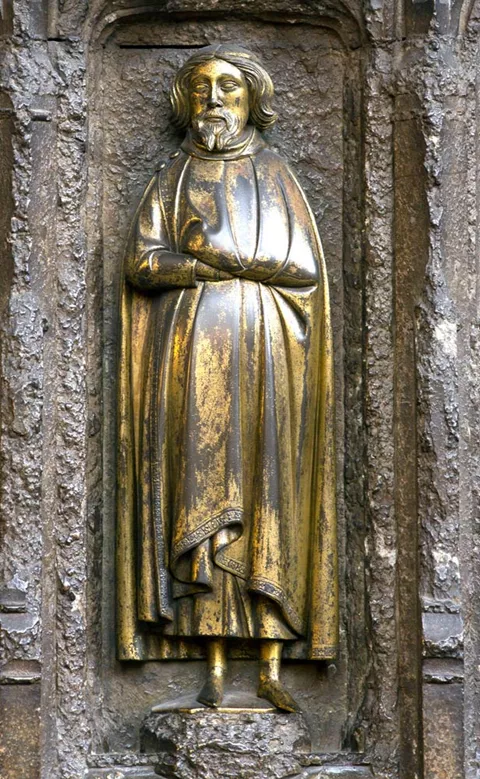
As a result of her marriage, Isabel became the first of a total of eleven women who became Duchess of York. She was appointed a Lady of the Garter in 1379. In their twenty years of marriage, the Duke and Duchess of York had three children:
Edward of Norwich, Duke of York
Constance
Richard of Conisburgh, Earl of Cambridge
Contemporary sources suggest that Edmund and Isabel were an ill-matched pair and their relationship was a rocky one, with Isabel accused of having an affair with John Holland, Duke of Exeter and half-brother to Richard II. The affair is believed to have started as early as 1374 and likely continued for a decade. As a result of her indiscretions, Isabel left behind a tarnished reputation. The chronicler Thomas Walsingham considered her to have somewhat loose morals.
John Holland has also been suggested as the real father of Isabel’s youngest son, Richard of Conisburgh, who was the grandfather of Edward IV and Richard III. The fact that his father Edmund of Langley and brother Edward, both, left him out of their wills has fuelled this theory. However, leaving a son out of your will was not entirely unusual, and Richard had died when his brother made his will.

Isabel of Castile died in December 1392 at the age of about 37 and was buried at Langley Priory in Hertfordshire. In her will, Isabel left items and gifts of money to close relatives by blood or marriage, and to numerous servants of hers, men and women. Isabel referred to Edmund of Langley as her "very honoured lord and husband of York", and left him all her horses, all her beds including the cushions, bedspreads, canopies and everything else that went with them, her best brooch, her best gold cup, and her "large primer". Isabel named King Richard II as her heir, requesting him to grant her younger son, Richard, an annuity of 500 marks. Isabel left nothing at all to her older sister Constanza, duchess of Lancaster, and failed even to mention her. Isabel doesn't forget John Holland in her will, at this time married to Elizabeth of Lancaster, John of Gaunt's daughter.
About 11 months later her widower married Joan Holland, niece of Isabel's supposed lover, John Holland. In another bizarre family twist, it was Joan’s brother, Edmund Holland, Earl of Kent, who had an affair – and an illegitimate daughter – with Constance of York, the daughter of Edmund and Isabel. In Edmund’s own will of 1400 he requested burial ‘near my beloved Isabele, formerly my consort.’ Despite Isabel of Castile's bad reputation and supposedly having been involved in a court scandal that humiliated her husband, Edmund seems to have felt great affection for her as demonstrated by his willingness to rest eternally with Isabel and not with his second wife.
Source:
#Isabel of Castile#Edmund of Langley#Duchess of York#Duke of York#women in history#english history#spanish history
11 notes
·
View notes
Text
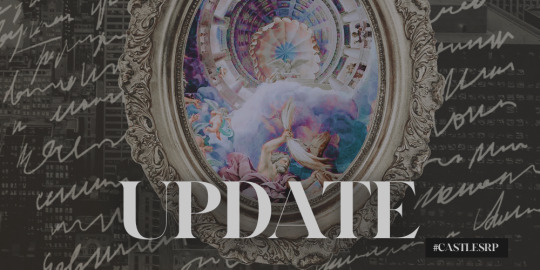
Face Claim List
Below the cut, you will find our list of face claims featured on our canon list. Enjoy this sneak peak at what is coming your way when the canon lists start being released this week!
FC List:
Abigail Cowen
Aishwarya Rai Bachchan
Amita Suman
Amy Adams
Ana de Armas
André De Shields
Andrew Garfield
Angela Bassett
Anna Kendrick
Anne Hathaway
Anthony Anderson
Anthony Mackie
Anya Chalotra
Anya Taylor Joy
Aja Naomi King
Avan Jogia
Avantika
Audra McDonald
Austin Butler
Beanie Feldstein
Ben Barnes
Beyoncé
BD Wong
Bette Midler
Caleb McLaughlin
Camila Mendes
Catherine O'Hara
Charles Melton
Chiwetel Ejiofor
Chloe Bennet
Chloe Bailey
Christina Hendricks
Christina Nadin
Chrissy Metz
Cody Christian
Constance Wu
Courtney Eaton
Dakota Johnson
Danai Gurira
Daniel Ezra
Daniel Wu
Danny Trejo
David Harbour
Deepika Padukone
Denzel Washington
Dev Patel
Diana Silvers
Diane Keaton
Dianna Agron
Dove Cameron
Dylan O'Brien
Eddie Redmayne
Eiza González
Emily Alyn Lind
Eva Longoria
Ewan McGregor
Fan Bingbing
Felix Mallard
Florence Pugh
Froy Gutierrez
Gabrielle Union
Gemma Chan
George Takei
Gillian Anderson
Gina Rodriguez
Gina Torres
Hailee Steinfeld
Halle Bailey
Harrison Ford
Harry Shum JR
Harry Styles
Henry Cavill
Hero Fiennes Tiffin
Hunter Schafer
Hugh Jackman
Idris Elba
J. Cameron-Smith
Jacob Artist
Jacob Elordi
Jameela Jamil
James McAvoy
Jamie Chung
Jamie Lee Curtis
Jasmin Savoy Brown
Jason Momoa
Jason Sudekis
Jean Smart
Jeff Goldblum
Jeffrey Wright
Jenna Ortega
Jensen Ackles
Jesse Williams
Jessica Chastain
JK Simmons
Joe Locke
John Boyega
John Cho
John Krasinski
Jon Hamm
Jonathan Bailey
Jordan Connor
Jordan Peele
Julianne Moore
Justice Smith
Kate Winslet
Kathryn Hahn
Kathryn Newton
Keanu Reeves
Keith Powers
Keke Palmer
Kerry Washington
Kit Connor [1]
Kit Connor [2]
KJ Apa
Kristen Bell
Kumail Nanjiani
Lana Condor
Laura Harrier
Lauren Ridloff
Leonardo DiCaprio
Letita Wright
Lili Reinhart
Liv Hewson
Logan Browning
Logan Lerman
Loretta Devine
Lupita Nyong'o
Mädchen Amick
Madelyn Cline
Madison Bailey
Mahershala Ali
Manny Jacinto
Manny Montana
Margot Robbie
Mark Consuelos
Mark Hamill
Mario Lopez
Mason Gooding
Maude Apatow
Megan thee Stallion
Melanie Lynskey
Melissa Barrera
Michael Cimino
Michael Evans Behling
Michael Fassbender
Michael Peña
Michael Shannon
Michelle Yeoh
Morgan Freeman
Naomi Scott
Natalia Dyer
Natasha Liu Bordizzo
Nina Dobrev
Noah Centineo
Normani
Octavia Spencer
Olivia Coleman
Olivia Rodrigo
Oscar Isaac
Paul Rudd
Pedro Pascal
Phoebe Deynover
Phoebe Tonkin
Phylicia Rashad
Priyanka Chopra
Rachel Weisz
Rachel Zegler
Rahul Kohli
Reese Witherspoon
Regé-Jean Page
Renee Rapp [1]
Renee Rapp [2]
Riz Ahmed
Robert Pattinson
Robert Downey JR
Rome Flynn
Rosamund Pike
Rose Byrne
Rudy Pankow
Ryan Gosling
Ryan Guzman
Ryan Reynolds
Sadie Sink
Sam Claflin
Samantha Logan
Samara Weaving
Sandra Bullock
Sandra Oh
Sara Ramirez
Sarah Jeffrey
Sarah Paulson
Sebastian Stan
Selena Gomez
Sigourney Weaver
Simu Liu
Shawn Mendes
Skeet Ulrich
Sophia Ali
Sophia Bush
Sophie Turner
Sonam Kapoor
Sophie Thatcher
Sterling K. Brown
Steve Martin
Steven Yeun
Storm Reid
Sydney Sweeney [1]
Sydney Sweeney [2]
Taika Waititi
Tati Gabrielle
Taraji P. Henson
Taron Egerton
Taye Diggs
Taylor Zakhar Perez
Ted Danson
Timothée Chalamet
Thomas Doherty
Tom Blyth
Tom Ellis
Tom Hardy
Tom Holland
Tony Goldwyn
Tyler James Williams
Tyler Posey
Uzo Adubo
Victoria Pedretti
Viola Davis
Whoopi Goldberg
Wolfgang Novogratz
Will Smith
Willem Dafoe
William Jackson Harper
Winona Ryder
Winston Duke
Yasmin Finney
Zayn Malik
Zendaya
Zoey Deutch
6 notes
·
View notes
Text
Le Gorafi
Le Figaro d'hier (le jeudi 16 novembre 2023) étalait fièrement, sur sa première page, un titre qui m'a presque donné la nausée : ''Ces mineurs qui basculent dans le terrorisme islamique'', avec une suite du même tonneau : ''Depuis le mois de janvier, plus de la moitié des mis en cause dans de telles affaires (NDLR - en français : le terrorisme islamique, et rien d'autre) ont moins de 18 ans. Si ce phénomène (même ''traduction'') remonte au début des années 2010, il s'accentue et inquiète les spécialistes''. Cette logorrhée est consternante !
Osons une expression dite populaire : ''Faut oser, tout de même'' ! Car pas un seul mot de cette fausse philippique n'est acceptable. D'abord et par définition, les ânes bâtés qui découvrent aujourd'hui cette situation ne peuvent en aucun cas prétendre au titre de ''spécialistes'' : tout cela était visible depuis dix ou quinze ans, et nous étions un nombre certain à le répéter à longueur d'écrit ou de parole publique (Rien qu'en ce qui me concerne, moi qui suis une goutte d'eau, je tiens à la disposition de qui le voudrait les nombreuses ''mises en garde'' que j'ai publiées dans pas mal de périodiques puis sur ce Blog, et que j'ai répétées à l'envi dans encore plus de conférences dans de nombreux cercles, depuis des décennies et devant des auditoires très variés...
Avant d'aller plus loin, il faut insister sur une idée-force qui est devenue un descriptif des temps actuels : personne n'a le droit de dire ''On ne savait pas'' : c'est refuser de voir le nez au milieu de la figure. (NDLR – vous me direz que entre le covid, l'Ukraine et le Moyen Orient, on sait ce que camoufle souvent le mot spécialiste ou expert : le vide, le néant... ou la désinformation !).
Quant au reste de cette bouleversante ''breaking news''... je ne sais pas s'il faut penser à un gag, à du ''foutage de gueules'', à un étalage de bêtise concentrée, ou à un aveuglement systémique... Mais réveillez-vous, ô membres de la con-frérie (je ne peut me résoudre à ne pas écrire ça en deux mots !) des journalistes myopissimes (ou ''de gauche'', c'est la même chose) ! Tout le monde sait ça (aux variantes près : devrait savoir/ fait semblant de ne pas savoir / veut absolument oublier / sait, mais déteste l'idée... etc !) : le temps, par notre faute, joue en faveur de ce basculement de la normalité vers l'anormalité, de la raison vers la folie et, en fin de compte, de la vie vers l'islamisme...
Cela fait des décennies que des esprits malfaisants tentent de nous persuader que nous devrions avoir honte d'être ''blancs'' (ce seul critère étant la preuve, ressassent-ils, de notre culpabilité ontologique, de notre racisme congénital -c'est un comble !- et de notre islamophobie chronique). Au début de cette mode mortifère, sous Chirac par exemple, c'était ''à bas bruit'', comme ils disent (NB – il faut reconnaître que c'est une des rares mauvaises idées que Mitterrand n'ait pas mise en œuvre). Sous Sarkozy, la France a semblé faire une courte cure de bon sens, mais avec le retour de l'idéologie de gauche, Hollande a pu s'en donner à cœur joie, et la présence au gouvernement de 2 ou 3 ministresses vraiment mal intentionnées envers la France a accéléré le mouvement... qui a acquis ses lettres de noblesse avec Macron. Là, ce n'était plus des ministres, c'était le chef suprême, qui donne le ''LA'' !
Et il faut reconnaître à notre Président de la constance pour décrire une France (a)- nulle(elle n'aurait, d'après lui, même pas de culture, seule nation au monde à être dans ce cas !), (b)- coupable, car la colonisation serait un ''crime contre l'humanité'' (sic ! Il faut lui acheter des livres sur la Shoah, sur le goulag, sur le lao-gaî, sur les tortures du FLN, sur Daesh et l'EI, sur les khmers rouges, sur le sort de nos pauvres Harkis, etc...), (c)- et des français ''gaulois réfractaires''(sous-entendu : à ce qu'il imagine être le progrès, qui n'est que la perte de l'âme), et paresseux (ils seraient même incapables de traverser la rue !)... Bref, un peuple auquel personne n'aurait envie de s'identifier, dans un pays qui n'est que vices, mensonges, erreurs, vols, tortures, abus, fautes, et décadence, ontologique elle aussi...
Au lieu de s'étonner (et, pour les occupants de nos palais nationaux, de ''péter'' de trouille –pardon, mais c'est le seul mot qui me vient devant leurs réactions tremblotantes face au mot ''islam'' qu'ils n'osent même plus prononcer-- sur l'évolution structurellement anti-française d'une partie (en augmentation constante, mais ça non plus, il ne faut pas le dire) de la jeunesse d'origine ''arabe'', qui vit dans des enclaves où c'est la Charia'a qui est la seule loi et où ''la République'' ne s'aventure plus tout en affirmant le contraire, nos dirigeants feraient bien mieux –(1)- de faire leur mea culpa(eux seuls, avec leurs mensonges éhontés, sont responsables de la situation qu'ils déplorent) et (2)- de changer de discours et de se mettre enfin à dire la vérité : pas plus qu'on n'attrape les mouches avec du vinaigre, on ne fera aimer la France en la rendant –et mensongèrement, en plus-- détestable.
Or –on doit le déplorer-- le jeu favori de notre Président semble être d'aller critiquer la France, son œuvre magnifique, et les français, dans les diverses capitales de nos ex-colonies, et à Alger tout particulièrement, où les enragés boivent du petit lait... alors que aucun de ces pays n'avait existé avant notre présence et qu'aucun n'aurait jamais existé sans elle... et qu'ils nous le reprochent aujourd'hui. Il semble adorer taper sur l’œuvre grandiose de nos colonisateurs, ces véritables géants d'une véritable épopée : la construction ex nihilo de dizaines de pays, de sentiment patriotique créé de la main du colonisateur, de drapeaux et d'hymnes nationaux (un exemple qui me touche au cœur : le An-našid Al-waṭani, l'hymne national marocain (= le berceau des hommes libres. Tout un programme !), a été composé par le capitaine Léo Morgan, chef de musique de la ''Garde noire'' du sultan, sur ordre du Maréchal Lyautey lui-même)... ''Crime contre l'humanité'', avez-vous dit, Monsieur le Président ? Mais qu'est-ce qui peut vous faire inventer de tels bobards, grands dieux ?
Car il ne faudrait pas, non plus, oublier les hôpitaux, les routes, les infrastructures, les écoles, les aéroports, les dispensaires, le niveau de vie des populations, l'arrêt brutal d'un esclavage endémique... et l'industrialisation (exemple : les statuts de toutes les grandes sociétés qui ont permis au Maroc moderne d'être ce qu'il est –chemin de fer, autocars, phosphates (premier pays au monde, ''Excusez du peu'' !), etc--... ont été rédigés par mon Père, premier notaire du Maroc et ami de Lyautey, et n'ont pas été changés depuis !). Tu parles d'un ''crime contre l'humanité'' !
Ah ! Si on veut chercher la petite bête, on va pouvoir effectivement trouver des exactions, des brutalités, des malversations... mais en quantités guère supérieures à ce que pratiquent, en permanence, le reste de l'humanité et la France, de plus en plus mal classée en ce qui concerne les atteintes aux personnes et la corruption ! Il était cent fois moins dangereux pour un ''colonisé'' de se promener dans son pays soumis à la Pax franca qu'il ne l'est à un ''blanc'' de se balader dans n'importe lequel des quartiers ''libérés'' de notre férule –à les en croire.
La question suivante est, évidemment : ''Au nom de quoi l'entreprise coloniale devrait-elle être la seule occupation humaine à ne pas connaître le péché ?''. On se demande où nos énarques, dont l'inculture abyssale –et même encore plus sale que ça, si j'ose ce mauvais jeu de mots-- est tellement biaisée à gauche, ont pu trouver les bobards qui forment la relecture malhonnête de l'histoire qu'ils nous imposent... et qui ne peut nous mener –et l'Europe, voire le monde, avec nous--, qu'à une ''méga cata'' de taille XXL... vers laquelle nous sommes en route, hélas !
Et le Figaro, décidément digne de son pastiche le Gorafi, de s'étonner de découvrir, avec un petit demi-siècle de retard, une des conséquences ''énièmes'' d'un drame qu'il a largement co-contribué à fabriquer en ne hurlant pas d'horreur à chacun des dérapages volontaires de nos nuls... qui refusent, encore et toujours, de désigner nos ennemis par leur nom et nos perspectives –sombres, toutes-- comme elles devraient l'être. Pour rester dans le langage parlé ''on est mal barrés'' !
H-Cl.
8 notes
·
View notes
Text
Constance, daughter of Edmund of Langley (Constance of York), was well-suited for a life with the Despensers. After Thomas's execution in 1400, she received goods and chattels worth £200, plus land worth a thousand marks annually as maintenance. At some point in the next four years Constance had a daughter, Eleanor, by Edmund Holland, earl of Kent, with whom - in Wylie's words - she was 'living in concubinage'. In February 1405 she became entangled in a Ricardian plot to bring down the Lancastrian regime, masterminded by her brother, (Edward) duke of York. Constance abducted the young Mortimer heirs at Windsor - it was they who had greatest claim to Richard II's throne in 1399 - and set out for Wales, presumably intending to link with the boys' father, an ally of the Welsh freedom-fighter Owain Glyn Dwr. However, the plot failed when they were captured at Cheltenham, and Constance was imprisoned in Kenilworth Castle. She appeared before the king's council accused of treason: the Chronicle of London recorded how ‘they seyden that the eldere chyld was trewe kyng.’ The Despenser lands were declared confiscate, although restored the following year. In essence, the plot was a failure, although it provides a fascinating insight into Constance's life after her husband's death. Perhaps most ironic of all was that a Despenser should have been attempting to place a Mortimer on the throne.
- Martyn John Lawrence, “Power, Ambition and Political Rehabilitation - the Despensers”
#historicwomendaily#history#constance of york#thomas le despenser#english history#15th century#despensers#kinda
13 notes
·
View notes
Note
Super random question, but is there like an actual history about how the kippah (the piece of clothing itself not the meaning) developed, because so far I've kinda headcanon'd it came from balding men wanting to protect their bald spot from the sun. It also always seems so flimsy, how are guys not losing it all the time?
Bfhdhdjdjsjs your headcanon is A++.
Tbh, I had to look it up, since despite thinking about it when I was younger, I never bothered to look it up. According to Jewish encyclopedia, through Wikipedia,
The Israelites might have worn a headdress similar to that worn by the Bedouins, but it is unknown whether a fixed type of headdress was used. That the headdress of the Israelites might have been in the fellah style may be inferred from the use of the noun צַנִיף, tzanif (the verb tzanaf meaning "to roll like a ball", Isaiah 22:18) and by the verb חַבָּש, habash ("to wind", compare Ezekiel 16:10; Jonah 2:6). As to the form of such turbans, nothing is known, and they may have varied according to the different classes of society. This was customary with the Assyrians and Babylonians, for example, whose fashions likely influenced the costume of the Israelites—particularly during and after the Babylonian Exile.[42] [...]
I imagine that, at the beginning, it was meant to protect the skin from the sun's heat, like the Bedouin used it, and given what is customary within Babylonian and Assyrian societies, it probably had also a role in distinguishing your social class (which is still sort of a thing! For insurance, in general black kippahs are a staple of Haredi Jews). That being said, on the Assyrian stelees Jews are not shown to wear any kind of head dress, which might mean they weren't in vogue during that time (or that the one making the stelee got lazy 🦥).
Now, as for the change into a skullcap, I imagine it was a change in fashion, which stuck for the longest and thus became the norm, yet it still differs among different Jewish communities:
The Black Velvet Kippahs are, as I said, of the ultraorthodox Jews, and even they have variation: See how one has a rim and one doesn't.



Haredi children might also have velvet Kippahs with embroidery or other colors such as navy blue.
Yemenite Kippahs tend to have a dark color and embroidery at the bottom, while there are also knitted Kippahs used by less orthodox factions of Judaism, and they come in many colors and many designs.
In other words, it's either a community thing (think breslov, bukharan Jews, and haredim) and/or a fashion thing (think suede and crochedet Kippahs used by reform and modern Orthodox Jews).


A good guide for this sort of thing is this the following image, which shows a series of changes of Jewish male headdress
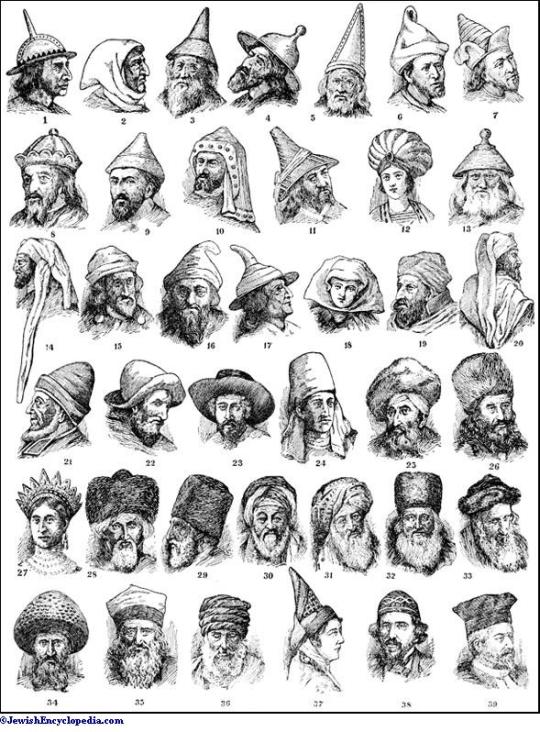
Jewish Head-Dress at Various Periods.1, 2. England (13th cent.). 3-5. Germany (13th cent.). 6-8. France (13th cent.). 9. Rhine Provinces (13th cent.). 10. Constance (1417). 11. Holland (15th cent.). 12. Italy (15th cent.). 13, 14. Germany (15th cent.). 15-17. Rhine Provinces (15th cent.). 18, 19. Worms (16th cent.). 20. Germany (16th cent.). 21. Worms: "Judenbischof" (17th cent.). 22. Swabia (17th cent.). 23. Frankfort-on-the-Main (1630). 24, 25. Poland (1765). 26, 27. Warsaw (1825). 28. Cracow (17th to 18th cent.). 29. Podolia (1750). 30. Tunis (1800). 31. Morocco (1800). 32. Moravia (1800). 33. Russia (modern). 34. Caucasus (modern). 35. Russia: Karaite (modern). 36, 37. Tunis (modern). 38. Russia: "Yarmulka" (modern). 39. England: rabbinical (modern).
As you can see, the headdress changed a LOT until it reached today's look, which is probably a product of changes in fashion, price of fabric, and probably also emancipation etc. and the desire to blend in better into gentile societies.
Then again, I'm no expert so I might be spewing nonsense XD.
Anyway, I hope this was helpful to some degree!!
10 notes
·
View notes
Text
Closed starter: Constance Seymour and Valencia Holland (@frvgcleternty)
Constance looked at the beautiful Dutch princess and her eyes flashed; she wanted to be angry at her for the way Valencia was breaking her brother's heart, but her brother had admitted that the marriage was partly his idea. Who then was to blame for the unhappiness when status mattered so much more than love. Constance had spoken with Valencia before she'd known what the princess meant to Alistair, but now, she knew exactly Valencia's reasons for approaching her. This time, Constance was the one to approach. "I hear congratulations are in order Princess Valencia. My brother told me that you are engaged to be married, to the Prussian king no less." Though she smiled at Valencia, she had no way to make it reach her eyes; she could not pretend when her brother felt such pain.
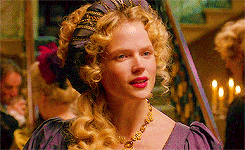
12 notes
·
View notes
Text
my muses ; this is temporary until i figure out how to make things mobile friendly !
FEMALES :
poppy : age unknown, pixie, currently captive by a vampire - madelaine petsch.
kiana murphy : 22, college student, waitress - samantha logan.
kimberly vaughn : 24, 1990's - young!julia roberts.
olivia harrington: 22, college student - grace van dien.
robyn bailey : 29, model & influencer - laura harrier.
sidney prescott : 17-22, scream 1-3 - neve campbell.
samantha palmer : 18-23, hs student/college student - katherine langford.
marianne parker : 55, ranger wife - diane lane.
katherine foster : 42, conwoman - anne hathaway.
andrea "annie" bennett : 41, inn owner & keeper, starting over - bethany joy lenz.
mercedes hart: 27, influencer & industry plant, upcoming musical artist - ryan destiny.
bristol harper : 35, online jewelry store owner, mother to two - hilary duff.
evangelina constance : 48, owner of a cult - carla gugino.
allison barnes : 38, former nurse now surviving the apocalypse - lauren cohen.
lacey thomas : 18-20, college student - nicole wallace.
seline castillo : 33, owner of flattop bar & grill, more info upon request - vanessa hudgens.
cassandra foxx : better known in her world as ALASKA, 30, sugar baby/escort, more info upon request - vanessa hudgens.
marzia vadala : 34, italian, jewelry store owner - phoebe tonkin.
gianna ortiz : 34, spanish, receptionist for a corportation - ana de armas.
mariana ruiz : 19-22, spanish, hs or college student - alexa demie.
holland st. clair : 25, model trying to get her debut, trans-female - hunter schafer.
angeline swanson : 23, pornstar - sabrina carpenter.
first last : 40, prosecutor - kerry washington.
MALES :
marshall "the judge" owens : 49, apocalyptic cult member - andrew lincoln.
jude mitchell : 34, lives in an apartment in nyc, struggling artist - andrew garfield.
david bascom : 26, 1950's, closeted homosexual - harry styles.
casey theriot : 27, nomad. - tom holland.
pak dae-hyun : 23, idol struggling with fame - junkook.
patrick galloway : 29, blackballed actor starting over - nicholas galitzine.
choi minho, 25, establishing actor, mostly indie films waiting for his break - kim jiwoong ( aki. )
hak su-jin : 31, book store / cafe manager in seoul - woo do-hwan.
kai kahinu : 19, younger brother to zane, new zealand native, maori - matthew sato.
wihan chen : 24, indie musician - first kanaphan puitrakul. ( tashi. )
felix maynard : 30, owner of tart & thyme restaurant, chef - will poulter.
caskey dallas : 18-23, outcast, more info upon request - cole sprouse.
robin sallow : 28, manager of off beat records, more info upon request - thomas doherty.
jesse dylan : 18-30 ( 1985 - 1997 ), teen/convict, more info upon request - dacre montgomery.
dean maddox : 22, college student, more info upon request - hero fiennes tiffin.
simon parker : 29, lead singer & guitar player of killin' time, more info upon request - joe keery.
maverick reed : 26, fisherman's son - rudy pankow.
hwan van : 26, mechanic - cha eun-woo
choi daehyun : 20, idol, au!fae - felix lee.
trevor elliot : 24, college, indie musician, au!fame - felix mallard.
kim hanuel : 26, ceo- yeo jin-goo.
andrew baker : 19, homeless. - brandon flynn.
casper cromwell : forever 20, ghostboy haunting a house. - louis patridge.
THEYS :
zane kahinu, 22, older sibling to kai, new zealand native, maori - zoe terakes.
3 notes
·
View notes
Text
Ahem.
An analysis of that TPJ scene where Reynie fully chucks the radio out the window without consulting the team because he's panicking slightly, because I completely forgot that happened and now it won't leave my brain
So, quick recap: The kids have gotten off the Shortcut and made it to the train station, figuring out the clues and boarding a train to Thernbaakagen, Holland. Cannonball had left them earlier to deal with an emergency with the ship, and gave Kate his radio so the kids could contact them if something happened. Reynie is incredibly suspicious of Captain Noland, and thinking that it's possible he has ulterior motives/thinks he's doing the right thing but isn't/is in the middle of flat-out betraying them/etc. This is compounded by the fact that Reynie currently has Schrodinger's diamond in his pocket, which Noland gave him, and if it's real then all of his fears have been confirmed and the Captain is a horrible person, but he can't bring himself to check.
Reynie's going through a lot at the moment.
“May I see that radio, Kate?” he asked.
Kate gave him a quizzical look. Something in Reynie’s tone had struck her oddly. It wasn’t a tone he had ever used with her, and she couldn’t guess what it meant. She handed him the radio. “What’s going on? You sound funny.”
Reynie opened the window and tossed the radio out.
“What in the world?” Kate cried. “Why’d you do that?”
Constance sat up to stare at him, and Sticky ran to the window to look out, as if the radio might have fallen somewhere he could reach. It hadn’t, of course, and he stared after it, shaking his head in disbelief.
“I don’t want him to know where we are,” said Reynie. “The captain. I don’t trust him.”
Sticky was still gazing forlornly out the window. That radio—their one connection to adults who might protect them—had been a source of comfort.
“I wish you’d discussed it with us first, Reynie.”
“I’m sorry. I was afraid you would argue.”
“You were being crafty!” Kate said. “That’s what your tone meant. No wonder I didn’t get it. I’ve heard you be that way with other people, but never with us. I have to say, I don’t like it.”
“Sorry,” Reynie said again. His tone was weary. He sat down on the bunk opposite Constance’s. His body felt leaden, as if he’d gained a hundred pounds.
“Reynie,” said Constance quietly.
With a feeling of great reluctance, Reynie looked up. “Yes?”
Constance’s pale blue eyes were shining with tears, and in them Reynie detected something like alarm. “The way you’re feeling about Captain Noland right now? I don’t ever want to feel that way about you.”
Reynie felt tears spring to his own eyes. He looked away.
“Don’t ever do that again,” Constance said. “Promise me.”
Reynie swallowed hard. He forced himself to meet her eyes again. Then he looked at Kate and Sticky, who were gazing at him wonderingly and with not a little hurt of their own. It would be awful for them to feel they couldn’t trust him, Reynie knew. For Constance it would be even worse. But it would be worst of all for him.
“I promise,” Reynie said.
And from the way Constance smiled, he knew that she knew that he meant it.
Reynie is more frightened about what Captain Noland might do if he knew where they were than he is caring about his friends at the moment, which is a new experience for all of them. In the past, they have talked things out because for the most part they have been aligned and together on their goals and how to execute them.
But he is so scared at this point that he doesn't take a moment to think rationally, he doesn't even stop for a second to consider the ramifications. He just feels with such conviction that it is imperative he get rid of that radio.
BUT. But, part of the reason he feels like this is because he has been carrying this fear and uncertainty on his own for days now. Reynie had some of these suspicions right off the bat, but he couldn't bring himself to share them with the others because he didn't feel like he could burden them with it. He was afraid to tell them, to scare them, to share information on something he wasn't quite sure about, but he also couldn't let himself sit idly by as his friends did something that might be dangerous.
Kate points it out: Reynie has always spoken plainly to them before, because he trusts them and values their counsel. He hasn't felt like he needs to protect them or hide things from them before, and it's causing a lot of conflict in him. Reynie is generally the team diplomat, because he is aware of other people's emotions and cognizant of the best way to communicate with people. He's good at this, and it's part of the team's collective arsenal of skills. The others haven't had a need to be aware of him being tricky, because he's never turned his skills on them before.
Kate is perturbed by this sudden switch in Reynie's behaviour and Sticky is frightened because he hates sudden change and Constance is terrified because she can sense the inner turmoil driving the decision. This is possibly the single worse action he could have taken at that second that caused the most distress to each of them. They're scared, but they're also scared for him, because this is new. This is unexpected, and in a situation where they're already facing so much, this might just be the straw that breaks the camel's back.
However, almost as soon as he's done that, Reynie feels terrible. He's under so much pressure from himself and the secrets he's trying to keep, and now that he's betrayed his friends. He knows he's done something wrong, and he hates that he's gone and hurt his friends, because he still isn't able to fully convince himself he's made the right decision. He's lost in his thoughts and has too many things pulling at him to be able to see clearly. Normally, he'd have Sticky to be objective with the facts, or Kate to be her very straightforward self, or Constance to lightly smack him and pull him out of his own head.
But he's stuck in a loop.
He can't ask them for help because he needs to find an answer, but he won't be able to find an answer unless he has help.
And he's upset with himself for allowing all this mental miasma to cloud his logic enough that he acted on pure emotion and hurting his friends, but he makes the brave choice and looks at Constance. He's reluctant and confused, but he pushes through that and looks at her and sees the bewilderment and fear his actions have caused in his friends.
Because that's the trick with Reynie. He can't ever just feel his emotions. It's never as simple as anger, or sadness, or even joy. He always feels his own emotions, and then those of the people around him, especially people he loves. He's feeling his own uncertainty and guilt at the same time as he's feeling the betrayal and anxiety and sadness and even anger that the others are experiencing, which makes him feel even more guilty.
But this time, he forces himself through it, and tells them he won't do it again. He can't quite explain himself yet, and he's still scared, just as he knows they are, but he apologises and tells them he doesn't want to do that to them again. And it doesn't immediately get better, but he does explain a little of his plan after, and they move forward with a tenuous peace. Relationships are often stronger after they've been fractured, and having weathered this they grow closer.
But maybe just defenestrating the only thing connecting you to a single possibly trustworthy adult should have been something you discussed with the team, buddy
#Sorry about all that#I just felt such intense emotion over this scene when I went through it again#I love them so much but they're facing insane amounts of pressure and confusion and peril#And I just couldn't stop thinking about all the details#I hope this makes sense#It feels terribly incoherent and rambly#Oh well#I hope someone gets something out of it#the mysterious benedict society#mbs#reynie muldoon#the perilous journey#tpj
15 notes
·
View notes